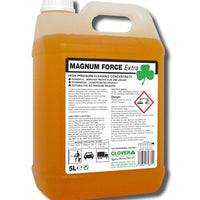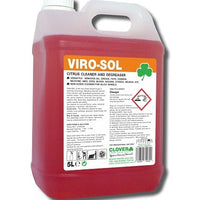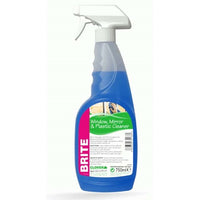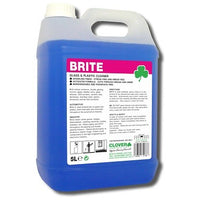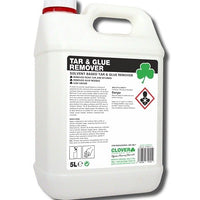Collection: Vehicle Cleaning Supplies
Comprehensive range of professional exterior vehicle cleaning products designed for thorough automotive cleaning and maintenance. Featuring powerful traffic film removers, citrus-based degreasers, streak-free glass cleaners and effective tar removal solutions. Essential products for professional valeting services, fleet maintenance and automotive enthusiasts requiring reliable cleaning performance across all vehicle surfaces.
Exterior Vehicle Cleaning Product information
Exterior vehicle cleaning represents the foundation of professional automotive maintenance, requiring specialised products that effectively remove diverse contamination types whilst protecting vehicle surfaces and maintaining appearance standards. Modern vehicles face constant exposure to traffic film, road salt, diesel residues, tar deposits, and environmental pollutants that demand targeted cleaning solutions for optimal results.
At ClickCleaning, we provide a comprehensive range of exterior vehicle cleaning products from trusted manufacturers including Clover Chemicals, designed to address every aspect of professional automotive cleaning. Our carefully selected range includes Magnum Force Extra Heavy Duty Traffic Film Remover for tough contamination removal, Virosol Citrus-Based Cleaner/Degreaser for versatile cleaning applications, Brite Glass and Plastic Cleaner for streak-free transparency, Screen Wash Concentrate for windscreen maintenance, and Tar & Glue Remover for stubborn adhesive deposits.
The complexity of modern exterior vehicle cleaning stems from the variety of contamination types that accumulate during normal use. Traffic film combines exhaust particles, road dust, salt residues, and atmospheric pollutants into stubborn deposits that require alkaline cleaners with controlled foam
characteristics. Grease and oil contamination from mechanical systems demands citrus-based solvents that penetrate and dissolve hydrocarbon deposits without damaging painted surfaces. Glass surfaces require ammonia-free formulations that remove films and deposits whilst preventing streaking and maintaining optical clarity.
Magnum Force Extra represents advanced traffic film removal technology through its concentrated alkaline formulation with controlled foam levels. This heavy-duty cleaner effectively removes accumulated traffic film, diesel residues, and industrial contamination that standard car shampoos cannot address. The controlled foam characteristic ensures proper coverage and contact time whilst preventing excessive foam buildup that can interfere with pressure washer systems and rinse procedures.
The versatility of Magnum Force Extra extends across the entire automotive industry, from passenger cars to commercial vehicles, tankers, and heavy plant equipment. Its odourless and non-tainting properties make it particularly suitable for vehicles involved in food transportation, ensuring compliance with
hygiene standards whilst delivering powerful cleaning performance. The concentrate formulation provides excellent value through dilution ratios from 1:2 for heavy contamination to 1:10 for routine maintenance cleaning.
Application flexibility allows Magnum Force Extra to be used through pressure washer systems or manual application methods depending on facility requirements and contamination levels. The free-rinsing characteristic ensures complete removal without residue buildup that could affect subsequent treatment applications or create streaking on painted surfaces.
Virosol Citrus-Based Cleaner/Degreaser addresses the growing demand for environmentally responsible cleaning solutions without compromising performance standards. This powerful concentrate combines naturally derived citrus solvents with specialised surfactants to create a fast-acting formula that removes stubborn contamination including oils, fats, grease, traffic film, rubber marks, and engineering deposits.
The citrus-based formulation provides excellent biodegradability whilst maintaining the cleaning power required for professional applications. Virosol
effectively cleans diverse surface types including painted panels, plastic trim, vinyl components, stainless steel fixtures, and anti-slip surfaces commonly found on commercial vehicles and marine applications.
Versatility extends beyond vehicle cleaning to encompass machinery degreasing, equipment maintenance, and facility cleaning applications. The pleasant citrus fragrance provides a more agreeable working environment compared to traditional solvent-based degreasers whilst maintaining professional performance standards required for commercial applications.
Brite Glass and Plastic Cleaner delivers streak-free transparency through its ammonia-free formulation designed specifically for automotive glass and plastic surfaces. Modern vehicles incorporate extensive glass areas and plastic trim components that require specialised cleaning approaches to maintain optical clarity and appearance standards.
The ready-to-use formulation eliminates dilution requirements whilst providing consistent performance across varied environmental conditions. Brite
effectively removes fingerprints, smoke films, road films, and atmospheric deposits that accumulate on windscreens, side windows, mirrors, and plastic surfaces without leaving chalky deposits or streaking that can impair visibility.
Professional application characteristics include rapid cleaning action that reduces labour time whilst delivering superior results compared to household
glass cleaners. The non-abrasive formulation protects delicate surfaces including tinted windows, head-up display surfaces, and sensitive electronic displays commonly found in modern vehicles.
Screen Wash Concentrate provides year-round windscreen maintenance through its concentrated isopropanol and surfactant blend designed for sub-zero performance. Effective windscreen washing is essential for driving safety, requiring products that remove contamination whilst maintaining streak-free clarity under all weather conditions.
The concentrated formulation allows dilution ratios up to 1:10 for normal conditions or 1:5 for severe weather periods, providing excellent value whilst
ensuring adequate freeze protection. The isopropanol content prevents freezing in windscreen washer systems whilst providing effective solvent action against road films, insect deposits, and atmospheric contamination.
Tar & Glue Remover addresses specialised contamination removal requirements for stubborn deposits that resist conventional cleaning methods. Road tar, adhesive residues, tree sap, and industrial deposits require targeted solvent action that dissolves contamination without damaging underlying paint or plastic surfaces.
Professional formulation provides controlled evaporation characteristics that allow adequate contact time for effective contamination dissolution whilst preventing excessive solvent exposure that could affect sensitive surfaces. The high flash point formulation ensures safer handling and storage compared to conventional tar removal products.
Surface compatibility extends across painted panels, plastic trim, rubber components, and glass surfaces, providing versatility for comprehensive vehicle cleaning applications. Effective removal of stubborn contamination prevents permanent staining and surface damage that can occur when deposits are allowed to accumulate or are removed using inappropriate methods.
Whether you're operating a professional valeting business, maintaining commercial vehicle fleets, or ensuring personal vehicles receive professional-standard cleaning, ClickCleaning's exterior vehicle cleaning products provide the performance, safety, and value required for superior results across all automotive cleaning applications.
Please contact us if you have any questions about our range we can assist with.
Exterior Vehicle Cleaning FAQs
What's the difference between Magnum Force Extra and regular car shampoo?
The main difference is in what they're designed to tackle. Regular car shampoo is brilliant for routine washing and removing light dirt and everyday grime, but it's not powerful enough for the heavy contamination that builds up from traffic, diesel fumes, and industrial pollution.
Magnum Force Extra is a concentrated alkaline cleaner specifically formulated to remove traffic film - that stubborn grey coating you see on lorries and commercial vehicles that won't shift with normal washing. It's like the difference between using washing-up liquid and using a proper degreaser on your oven.
The controlled foam levels are crucial too. Regular car shampoos often create lots of foam, which looks impressive but can actually interfere with pressure washer systems and make thorough rinsing difficult. Magnum Force Extra produces just enough foam to indicate coverage whilst ensuring proper contact with contaminated surfaces.
You'll typically use Magnum Force Extra as a pre-treatment before your regular wash routine, or as the main cleaner for heavily contaminated vehicles. It's particularly useful for vehicles that spend time on motorways or in industrial areas where normal car shampoo just isn't up to the job.
The dilution ratios are much more flexible too. You can use it at 1:2 for really stubborn contamination or 1:10 for maintenance cleaning, which gives you much more control over cleaning power and cost-effectiveness.
If you've ever tried to clean a work van or lorry with car shampoo and ended up frustrated with the results, Magnum Force Extra is what you need. It's designed for the real-world contamination that professional vehicles face every day.
Is Virosol safe to use on all vehicle surfaces?
Virosol is safe on most vehicle surfaces, but like any powerful cleaning product, there are a few things to watch out for.
It works brilliantly on painted panels, plastic trim, vinyl components, rubber seals, and stainless steel fixtures. The citrus-based formula is much gentler than traditional hydrocarbon solvents whilst still providing excellent degreasing power.
However, you should avoid using it on aluminium surfaces and other alkali-sensitive materials. This includes some wheels and trim pieces, particularly on older vehicles or specialist applications. If you're not sure about a particular surface, test it on a small, hidden area first.
The beauty of Virosol is its versatility - you can use it for engine bay cleaning, removing rubber marks from paintwork, cleaning heavily soiled areas, and even for general equipment degreasing. The pleasant citrus smell is a massive improvement over traditional degreasers too.
For normal vehicle cleaning, dilute it according to the contamination level. Light cleaning might only need 1:200 dilution (5ml per litre), whilst heavy degreasing could require it neat or at 1:50 dilution. This flexibility means you're not wasting product on jobs that don't need full strength.
Always rinse thoroughly after use, especially on painted surfaces. The citrus solvents are designed to be fast-acting, so you don't need long contact times for most applications.
If you're working on classic cars or vehicles with unusual finishes, err on the side of caution and test first. Modern vehicle paints and plastics are generally very compatible with citrus-based cleaners, but older materials can sometimes be more sensitive.
How do I achieve streak-free results with Brite Glass Cleaner?
Getting streak-free results is all about technique and using the right tools alongside the product.
First, make sure you're using clean, lint-free cloths or microfibre towels. Dirty cloths are the biggest cause of streaking because they just move contamination around rather than removing it. Have separate cloths for cleaning and polishing - don't use the same one for both jobs.
Apply Brite directly to the surface rather than the cloth when possible. This ensures even coverage and prevents oversaturation of your cleaning cloth. Spray a light, even mist rather than soaking the glass.
Work in sections, especially on large areas like windscreens. Clean one section completely before moving on to the next. If you try to do the whole windscreen at once, the product might start drying before you can properly clean it off.
The key is to wipe in one direction during cleaning, then polish in the opposite direction. So if you clean horizontally, polish vertically. This helps eliminate any micro-streaks that might be left behind.
Don't work in direct sunlight if you can avoid it. Hot glass causes the cleaner to evaporate too quickly, which can leave residues that create streaking. Shade or cooler conditions give you more working time.
If you're still getting streaks, check your water quality. If you're rinsing with hard water before applying Brite, the mineral deposits might be interfering with the cleaning action. Use deionised water for rinsing if this is a problem.
For tinted windows, Brite is perfect because it's ammonia-free. Ammonia can damage window films, so this gives you peace of mind whilst delivering excellent results.
Professional tip: finish with a completely dry, clean microfibre cloth for that final polish. This removes any last traces of moisture and product residue for a perfect finish.
What dilution ratio should I use for Screen Wash Concentrate?
The dilution ratio depends on the weather conditions and how contaminated your windscreen typically gets.
For normal summer conditions, you can dilute up to 1:10 (100ml of concentrate to 1 litre of water). This gives you excellent cleaning power for everyday road grime, insect splats, and light contamination whilst being very economical.
In winter or severe weather conditions, use 1:5 dilution (200ml of concentrate to 1 litre of water). This stronger mix provides better freeze protection and more cleaning power for the heavy contamination that winter driving brings - road salt, mud spray, and that persistent film that builds up in wet conditions.
If you're doing lots of motorway driving or working in particularly dirty environments, stick closer to the 1:5 ratio even in summer. High-speed driving creates more aggressive contamination, and you'll appreciate the extra cleaning power.
The concentrate contains isopropanol which provides the freeze protection, so don't be tempted to dilute it too much in winter thinking you'll save money. Weak mixtures can freeze and damage your washer system, which is much more
expensive than using the product at proper strength.
Always mix with clean water if possible. Hard water can interfere with the surfactants and reduce cleaning effectiveness. If you're getting streaking or poor cleaning, try mixing with distilled or deionised water.
Start with the recommended ratios and adjust based on your results. If you're finding it's not cleaning effectively enough, increase the concentration slightly. If it's working well, you might be able to go a bit weaker in very clean driving conditions.
Remember, this is your safety we're talking about - clear vision is essential for safe driving. It's better to use a bit more product and have perfectly clean windscreens than to try and save a few pence and compromise your visibility.
Can I use these products in direct sunlight?
It's generally best to avoid working in direct sunlight when possible, but sometimes you don't have a choice. Here's how to get the best results in different conditions.
For Magnum Force Extra, direct sunlight isn't ideal because it can cause the product to dry on the surface before you have chance to rinse it off properly. This can leave residues or even cause staining on some surfaces. If you must work in sun, apply it in small sections and rinse immediately - don't let it dwell.
Virosol is a bit more forgiving because the citrus solvents work quickly, but you still want to avoid letting it dry on painted surfaces. Work in shade where possible, or early morning/late evening when the sun isn't as intense.
Brite Glass Cleaner definitely works best out of direct sunlight. Hot glass causes the product to evaporate too quickly, which is the main cause of streaking. If you have to clean windows in sunlight, work very quickly in small sections, or wait for cloud cover.
The Screen Wash Concentrate isn't affected by sunlight since you're mixing it in the bottle, but remember that using your washers in very hot conditions might cause increased evaporation from the windscreen.
Tar & Glue Remover can actually work better in warm conditions because heat helps the solvents penetrate stubborn deposits. Just don't let it sit too long - apply, agitate if needed, and remove promptly.
Professional tip: if you're running a valeting business or doing multiple vehicles, try to schedule your work for early morning or late afternoon when temperatures are cooler and you can work in shade. Your results will be better, and it's more comfortable working conditions too.
If you absolutely must work in bright sun, have everything ready - clean cloths, rinse water, and work systematically. The key is not to let any product dwell longer than necessary on hot surfaces.
How do I remove stubborn tar spots from my vehicle?
Tar spots are one of those annoying contamination types that need the right approach to remove safely and effectively.
First, don't try to pick or scrape them off when they're hard - you'll likely damage the paint. If it's winter or the tar is very hard, try warming the area gently with a hair dryer or by parking in the sun for a bit. Warm tar is much easier to remove.
Apply Tar & Glue Remover directly to the tar spots and let it work for a few minutes. The solvents need time to penetrate and soften the tar, so don't rush this step. For really stubborn spots, you might need to apply it twice.
Use a plastic scraper or your fingernail to gently lift the softened tar. Work from the outside of the spot inwards to avoid spreading it around. Don't use metal tools as these will definitely scratch your paint.
For any residue that remains, apply more product and agitate gently with a cloth. The key word here is gently - let the product do the work rather than trying to scrub it off.
Once you've removed the tar, you'll need to degrease the area because the solvents will have left a residue. This is where Virosol comes in handy - dilute it about 1:50 and wipe over the area to remove any remaining solvent residue.
Finally, wash the area with normal car shampoo and rinse thoroughly. You might find the paint looks slightly different where the tar was - this is normal and usually disappears once you've waxed or polished the area.
Prevention is better than cure though. Try to avoid driving close behind lorries, especially on newly surfaced roads where tar pickup is more likely. If you do get tar on your car, deal with it as soon as possible - fresh tar is always easier to remove than old, hardened deposits.
What's the proper sequence for exterior vehicle cleaning?
Getting the sequence right makes a huge difference to your results and prevents you from undoing work you've already done.
Start with a thorough rinse to remove loose dirt and grime. This prevents you from dragging particles across the paint during washing, which causes scratching.
If you're dealing with heavy contamination, apply Magnum Force Extra as a pre-treatment. Dilute it according to contamination level, apply with a pressure washer or spray bottle, and rinse off immediately. Don't let it dry on the surface.
For stubborn deposits like tar or tree sap, treat these with Tar & Glue Remover before the main wash. It's much easier to deal with these when the surrounding area is relatively clean.
Now do your main wash using quality car shampoo, working from top to bottom in sections. Don't forget to clean your wash mitt regularly in clean water to avoid cross-contamination.
For areas that need degreasing - engine bay, heavily soiled wheel arches, or industrial contamination - use Virosol after the main wash. This prevents you from spreading grease around during the primary cleaning.
Glass cleaning comes near the end. Use Brite Glass Cleaner on all windows, mirrors, and plastic trim pieces. Clean glass last because you don't want overspray from other products contaminating freshly cleaned glass.
Finally, if you're applying any protection products like wax or sealants, the vehicle needs to be completely clean and dry first. Any contamination left on the surface will be sealed in and affect the performance of your protection.
Don't forget to top up your screen wash with the concentrate mixed to appropriate strength for the season.
The key is working systematically and not jumping between different types of cleaning. Complete each stage properly before moving on to the next, and you'll get much better results with less effort.
Are these products safe for wrapped or vinyl-decorated vehicles?
Vehicle wraps and vinyl graphics need special consideration because they're
not as durable as paint and can be damaged by aggressive products or
techniques.
For wrapped vehicles, Brite Glass Cleaner is generally safe on the vinyl
itself, but test on an inconspicuous area first. Different vinyl manufacturers
use different adhesives and surface treatments, so what works on one wrap might
not suit another.
Magnum Force Extra should be used with caution on wraps. The alkaline
formulation can potentially affect some vinyl adhesives, especially around
edges where moisture might penetrate. If you must use it, test first and avoid
letting it dwell for extended periods.
Virosol is usually fine on quality vinyl wraps because the citrus-based
formula is gentler than traditional degreasers. However, avoid using it at full
strength and always test first. Some cheaper vinyls or older installations
might be more sensitive.
Screen Wash Concentrate won't come into contact with the wrap during normal
use, so that's not a concern.
Tar & Glue Remover needs careful consideration. While it's designed to
remove adhesive residues, it could potentially affect wrap adhesives if it
penetrates to the edges. Use sparingly and avoid getting it on wrap joints or
edges.
General rules for wrapped vehicles: never use high-pressure washers too
close to the surface, avoid hot water, don't use brushes or abrasive materials,
and be gentle around edges and seams. Always test any new product on a hidden
area first.
The safest approach is to contact your wrap installer for their specific
recommendations. Different wrap materials and installation methods have
different care requirements, and they'll know exactly what's safe for your
particular installation.
Many wrap manufacturers provide specific care instructions, so check these
before using any cleaning products. It's much better to be cautious than to
damage an expensive wrap installation.
How often should I clean the exterior of my vehicle?
The frequency really depends on how and where you use your vehicle, but here are some practical guidelines.
For most cars used for normal driving, a proper exterior clean every 2-3 weeks keeps everything in good condition. This includes the full wash routine with appropriate products for any contamination you encounter.
If you're doing lots of motorway miles, you'll probably need weekly cleaning. High-speed driving picks up more contamination, and the longer you leave it, the harder it becomes to remove.
Commercial vehicles and those used in dusty or industrial environments might need cleaning twice a week or even daily in extreme cases. The key is not letting contamination build up to the point where it becomes difficult to
remove.
Windscreen maintenance is different - top up your screen wash weekly or whenever the level drops. Clean windows are essential for safety, so don't let this slide.
For spot cleaning of tar, bird droppings, or tree sap, deal with these immediately when you notice them. These contaminants can cause permanent damage if left too long, especially in hot weather.
Winter requires more frequent attention because road salt is so corrosive. Try to rinse off salt deposits at least weekly, and do a proper clean with traffic film remover every 2-3 weeks to prevent salt buildup.
The real test is looking at your vehicle. If the paintwork is starting to look dull, if water doesn't bead properly anymore, or if you can see contamination building up, it's time for a clean regardless of the calendar.
Pay attention to areas that get forgotten - door shuts, under wheel arches, behind number plates. These areas can harbour contamination that spreads to clean areas if you're not thorough.
Professional tip: little and often is better than leaving it until the vehicle is heavily contaminated. Regular maintenance with appropriate products will keep your vehicle looking better and preserve its value much more effectively than infrequent deep cleaning.
What safety precautions should I take when using these cleaning products?
Safety should always be your priority when using any cleaning chemicals, even the more environmentally friendly ones.
Always read the product labels and safety data sheets before first use. Each product has specific safety requirements, and it's worth taking five minutes to understand what you're working with.
Personal protective equipment is essential. Wear nitrile gloves to protect your skin, especially when using concentrated products like Magnum Force Extra or undiluted Virosol. Chemical-resistant gloves last longer and provide better protection than ordinary rubber gloves.
Eye protection is crucial, particularly when using pressure washers or working overhead. Splashes can happen even when you're being careful, and getting cleaning chemicals in your eyes is serious.
Work in well-ventilated areas where possible. While these products are much less aggressive than some industrial chemicals, good ventilation prevents vapour buildup and makes working more comfortable.
Never mix different cleaning products together. Chemical reactions between different products can create dangerous gases or reduce effectiveness. Use one product at a time and rinse thoroughly between applications.
Store products properly - upright, in cool, dry conditions, away from children and pets. Make sure caps are tight and labels are legible. If you decant products into spray bottles, label them clearly.
Be particularly careful around hot surfaces. Don't apply cleaning products to very hot paintwork or exhaust components. Apart from safety concerns, the products won't work properly on overheated surfaces.
If you get product on your skin, rinse immediately with plenty of clean water. For splashes in eyes, rinse for at least 15 minutes and seek medical advice if irritation persists.
Keep a first aid kit handy and know where your nearest eyewash station is if you're working in a commercial environment. For home users, make sure you have access to plenty of clean water for rinsing.
Finally, dispose of waste products responsibly. Don't pour chemicals down drains or onto the ground. Most areas have facilities for disposing of automotive chemicals safely - check with your local council for guidance.


